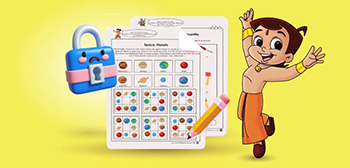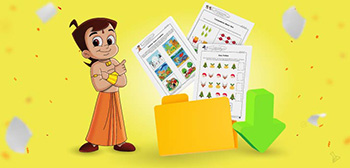-
Worksheets
-
By Class
- Nursery Worksheets (3-4 Years)
- LKG Worksheets (4-5 Years)
- UKG Worksheets (5-6 Years)
- Class 1 Worksheets (6-7 Years)
- Class 2 Worksheets (7-8 Years)
- Class 3 Worksheets (8-9 Years)
- Class 4 Worksheets (9-10 Years)
- Class 5 Worksheets (10-11 Years)
- Class 6 Worksheets (11-12 Years)
-
All Age Group
-
Creative Worksheets
- Around The World
- Brain Games
- Coloring Pages
- Story Telling
- Calendar and Planner
- Celebration Gifting
- Stickers
- Stories Adopting a pet
- Stories Football Match
- Stories Reading and Activities
- Art and Craft
- Color by Number
- Schooltime Bingo
- Know Your Numbers
- Language
- Eco Home Scavenger Hunt
- Color Mathemagic
- Long, Longer, Longest
- Prints and Patterns
- Stories Activity Of Flowers
- Memory Game
- Foodie Bingo
- Shape Hunt
- Sight Word Practice
- Addition Maze
- Storyhats
- Nature Exploration
- Maths Fractions
- Biology
- Is it more or less
- 2024 Calendar
- Festivals
- Activity
- Time Management
-
Creative Worksheets
-
By Class
- Lesson Plan
- Teachers Plan


